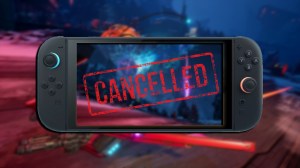Toxicity is a big problem in online-based games. As I say, one troll in the room is a good time. A room full of trolls is frightening chaos though.
Videos by ComicBook.com
That said, according to Jerome Hagen, a user research for Microsoft, newly-released Sea of Thieves was designed at its core to combat toxicity and empower behaving players.
Speaking during a panel at Game Developers Conference this week, Hagen talked about giving players the power to control what type of gaming experience they have, whilst clamping down on undesirable behavior from the community within. Basically, keep it classy and you will be golden. Be a bad little pirate though, and expect canon fire to rain down upon you from developer Rare.
According to Hagen, there is often a lot of stress in reporting another player, and thus if a game can alleviate this process by identifying the problem itself, it should, and Sea of Thieves does. An example of Sea of Thieves doing some of the heavy lifting is the holding cell located beneath the ship where bad pirates can be thrown and locked away via a democratic vote by the crew. Basically, it gives the player the power to deal with the problem immediately, rather than just go through a reporting system that may or may not have delayed implications for said disruptive player. Further, as Hagen noted, it allows players to role-play what they might actually do in the situation in real life, which is always a fun thing to participate in.
“You might have a player who joins your crew and they are causing problems of some kind,” Hagen said. “If it’s bad enough, you have the option to kick them entirely. The brig was introduced as a way to give players control. They can vote to put someone in the brig, or have them negotiate, apologize, or do whatever fixes the situation best. We’ve seen this in a really playful and role-playing way that comes with being a pirate.”
Hagen continues, talking about the democratic system that takes the dreadful reporting process, and makes it a positive gameplay experience:
“Making sure that these features that help players experiences are built in a natural part of the gameplay as much as possible is key,” Hagen said. “It’s not just a feature to get away from badness, but is a feature that can add to the fun.”
There is also the option of “Scuttle Ship,” where players can zap their ship to another part of the map if another ship won’t leave them alone. This may not qualify as harassment, but in Rare and Microsoft’s eyes, it creates an undesirable experience that players shouldn’t have to deal with if they don’t want to.
As mentioned above, toxicity is a growing problem in the multiplayer space, and so it’s interesting to see a variety of developers tackle it with a variety of tactics with varying success. In this case, it seems Rare did and is doing a good job.
Sea of Thieves, which launched this past week, is available for Xbox One and PC.
Source: Polygon








